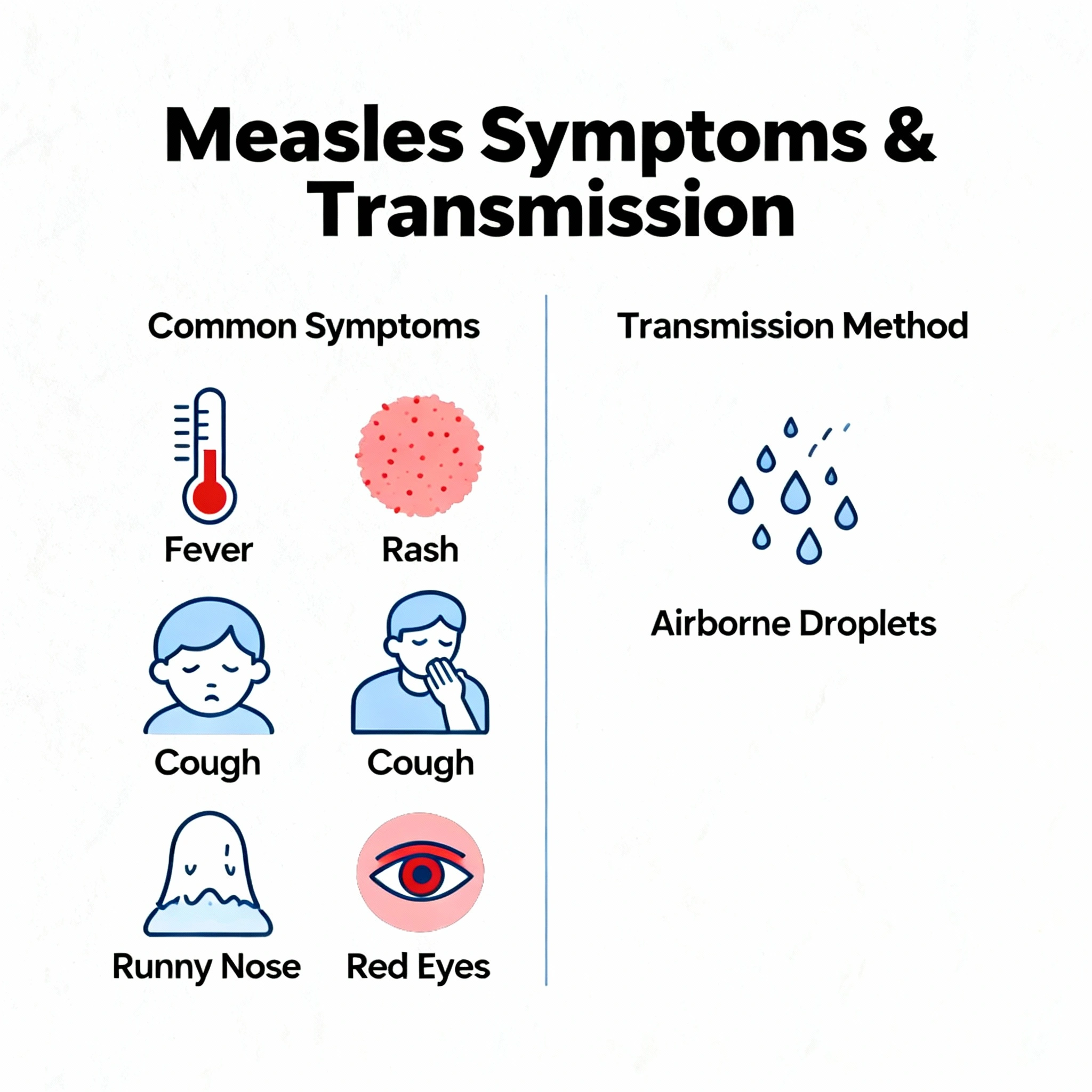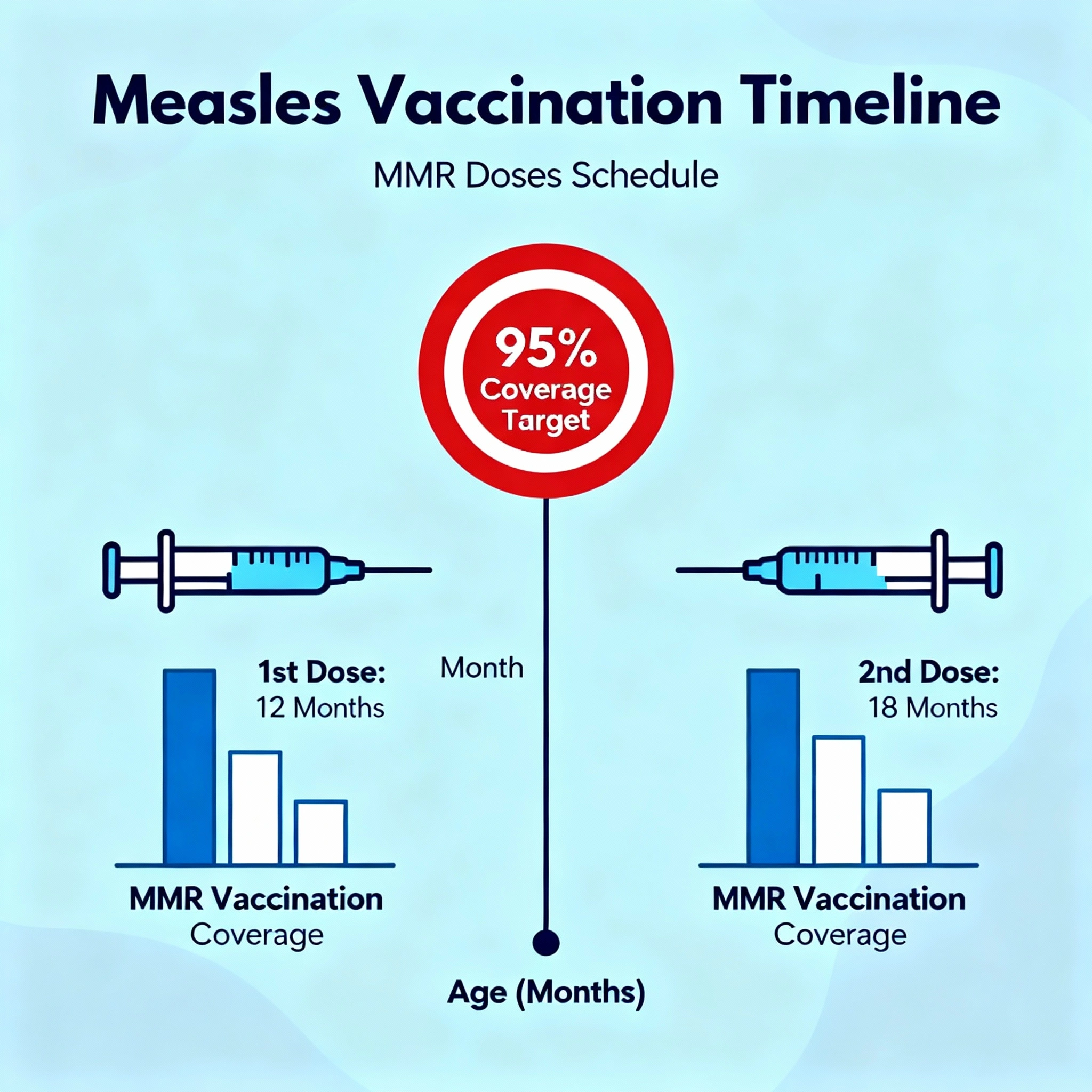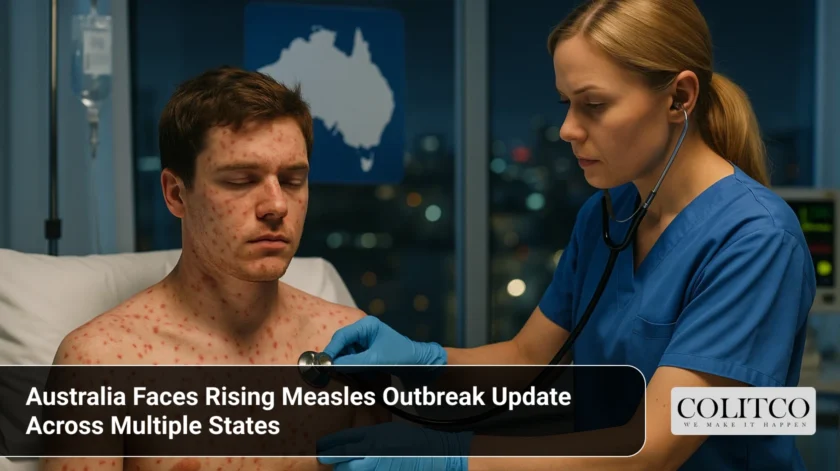Australia reports 126 measles cases nationwide in 2025, marking a dramatic increase from 57 cases recorded throughout 2024. Health authorities across multiple states have issued urgent vaccination warnings as cases surge beyond international travel patterns into local transmission.
Queensland Records Major Outbreak in Far North
Queensland Health declared a measles outbreak in Cairns with 12 confirmed cases identified since 1 September 2025. Health officials report some cases stem from overseas travel, particularly from Bali, while others represent local transmission within the community.
The outbreak affects multiple regions across Queensland with active measles alerts currently in place for Cairns, Gold Coast, Mackay and Townsville. Exposure sites include restaurants, hostels, shopping centres, and significantly, the Cairns Hospital maternity ward along with other hospital units.
Dr Clare Huppatz from Western Australia’s health department warns travellers face ongoing measles risks from popular holiday destinations in south-east Asia. International outbreaks continue across Indonesia, Vietnam, Thailand, Cambodia, the Philippines, Malaysia and India.

Measles symptoms and transmission methods
Western Australia Reports Significant Case Increase
Western Australia recorded 36 measles cases in 2025 compared to six cases in 2024. Health authorities identified 16 cases between July and September 2025, with five linked to returned overseas travellers and 11 acquired locally.
Recent cases visited multiple Perth locations while infectious, including Perth Airport terminals. WA Health expanded state-funded immunisation programmes to include MMR vaccines for infants aged six to 11 months travelling to high measles activity countries.
Victoria and NSW Issue Fresh Health Alerts
Victoria Health issued measles alerts on 14 September 2025 after reporting a new case in an adult who likely acquired the infection during travel to Europe and Bali. The department warns of ongoing importation risks from travellers returning from overseas destinations.
NSW Health confirmed measles cases on 19 September affecting Sydney’s northwestern suburbs and Northern NSW regions. Cases included individuals who were infectious while visiting multiple locations and flights between Perth, Sydney and the Gold Coast.
National Vaccination Coverage Falls Short of Targets
Australia’s measles vaccination coverage rates remain below the 95% national target required for herd immunity. The World Health Organisation recommends 95% two-dose vaccination coverage to prevent ongoing transmission of the highly infectious disease.
Recent data shows coverage of the first MMR dose in children at 24 months decreased by 0.4 percentage points from 2022 to 2023. Only 13.6% of statistical areas achieved 95% coverage for the second MMR dose at 24 months.
Health experts note most recent Victorian measles cases occurred in people without two documented MMR vaccine doses. The vaccine provides 99% protection against illness and serious complications when administered in two doses.

MMR vaccination schedule and coverage targets for measles prevention
Travel-Related Cases Drive Transmission Patterns
Most Australian measles cases are connected to international travel or contact with infected travellers. Popular destinations including Bali, Indonesia continue experiencing significant outbreaks that threaten Australian travellers.
Queensland Health reports cases following travel to Bali prompted measles alerts south of Brisbane in August 2025. An infected passenger arrived on Jetstar flight JQ60 into Brisbane on 19 August, subsequently visiting multiple venues in Yamanto and Boonah while infectious.
WA Health recorded three new measles cases in returned travellers from Bali in August, bringing the state’s total to 33 cases by month’s end. These cases visited numerous Perth metropolitan venues while unknowingly infectious.
Also Read: CSL Shares Tumble as Trump’s Pharmaceutical Tariff Bombshell Rocks Australian Markets
Health Response
Australian Health Protection Committee emphasises four priority areas including on-time childhood vaccination, catch-up vaccination for children and adults, complete vaccination for overseas travellers, and consistent healthcare information.
The National Immunisation Program provides free MMR vaccines for children at 12 and 18 months. State-funded programmes offer vaccines for adults born after 1966 without documented evidence of two doses.
Healthcare professionals must maintain high suspicion for measles in patients with fever and rash, regardless of travel history. Clinicians must test, isolate and notify suspected cases immediately to Local Public Health Units.
Vaccination Recommendations
Infants from six months can receive state-funded MMR doses before overseas travel to endemic countries or outbreak areas. Parents planning international travel should discuss vaccination schedules with healthcare providers well before departure.
The measles virus remains infectious in the air for 30 minutes after infected individuals leave rooms. Symptoms typically develop 10 days after exposure but can appear between seven to 18 days following contact.
Australia achieved measles elimination status in 2014 through the World Health Organisation, yet declining vaccination rates since COVID-19 threaten this achievement. Current case notifications demonstrate the virus can still circulate within communities when vaccination coverage drops below optimal levels.












